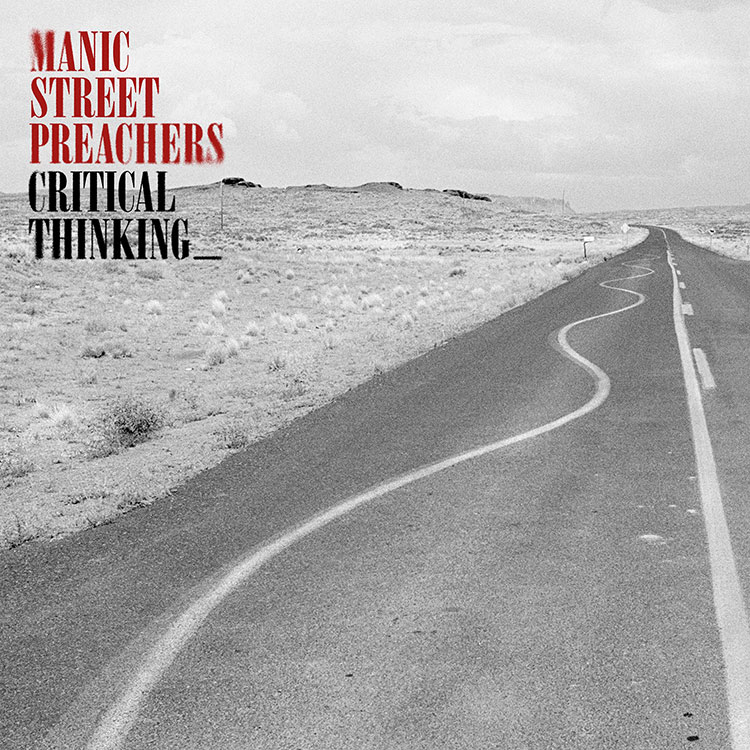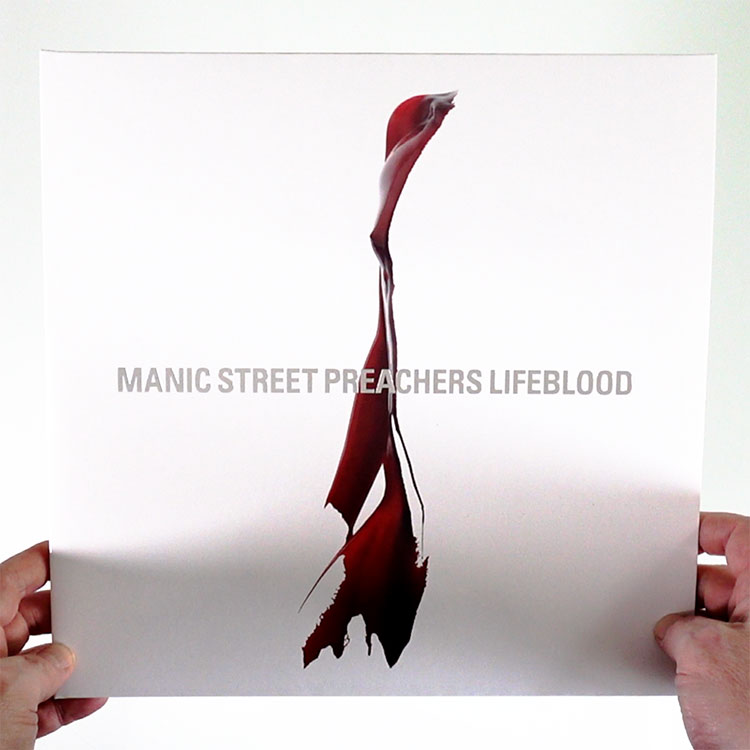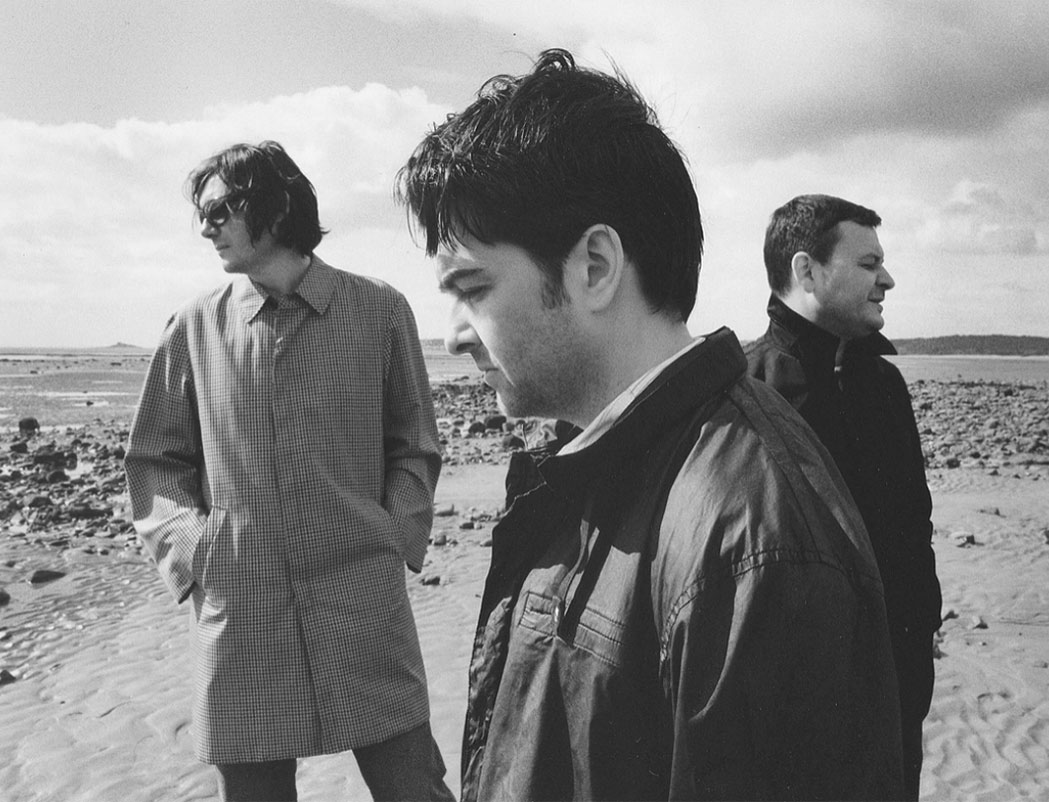Manic Street Preachers / Critical Thinking, reviewed
The Manics “remain in conversation with themselves”

Critical Thinking is an album we could call a late-period triumph if it wasn’t for the fact that it’s far from certain that it’s “late period” at all. This isn’t a band that seems in any danger of stopping
Marc Burrows
“We wanted to try, at every level, to make chapter 22 or chapter 24 in our book interesting”. James Dean Bradfield, guitarist, singer and occasional lyricist with the Manic Street Preachers said that, in reference to a gig he’d just played. “It’s something interesting toward the end of the book. People who say we spent the latter half of our career coasting, we can tell them we didn’t”. The thing is, Bradfield gave that quote in 2001, while justifying the band’s much trumpeted visit to Cuba where they played for Fidel Castro. At that point the Manics had been together for over a decade. A lot had happened to them in that time. It must have felt like forever. In truth, the book had barely begun.
This is a band, after all, that wrote a whole album, This Is My Truth, Tell Me Yours, about being depressed, knackered, out of touch with who they once were and feeling painfully old … before any of them had turned 30. Of course, back then time moved differently. To the late-90s teenage Manics fan, the 30-year-old trio who had once pouted and preened, ranted and rocked, were practically geriatric. We loved them anyway. Now though? We’re all the wrong side of forty, and we get it.
It’s not the members of the Manic Street Preachers that are 30 years old now — it’s the band itself. Critical Thinking is their 15th album. They’ve taken the odd year off, but they’ve never split up. They’ve never stopped working. It makes them practically unique amongst their peers. They’ve been fighting the long defeat since at least 1998. They’re still fighting it.
It’s not the members of the Manic Street Preachers that are 30 years old now — it’s the band itself.
Marc Burrows
There’s a song on Critical Thinking called ‘Decline and Fall’ — the lead single from the record. It sounds classically Manic Street Preachers, a big, brash, bolshy indie rock song, in the mode of something like 2010’s ‘It’s Not War (Just The End of Love)’ or 2017’s ‘International Blue’ — the kind of thing the Manics can do in their sleep. Big Sound Manics, channeling Simple Minds, The Waterboys and Big Country; the influences they kept quiet about in their early days when they were all about Guns N’ Roses, Public Enemy, The Clash, the Pistols and Joy Division, but have very much embraced in their third decade. It must surely have been a working title for the album itself. This is indeed a record about decline — about feeling alienated as the modern world, with its buzzwords and technology, with its apathy and alarmism, with its pettiness, distance, sanitisation, dehumanisation, self-obsession and nauseating tactility that surrounds the vanishing island of a middle aged rock band like an incoming sea. Again and again Nicky Wire, both as a lyricist and vocalist here, rage-rages against the dying of the enlightened as we “hurtle down the avalanche to the cul-de-sac of a nondescript nowhere land”, as he sings on the actual title track, a spiky, half-spoken rant that opens the album and sounds brilliantly, deliciously like The Fall.
And yet ‘Decline and Fall’ itself (which ironically doesn’t sound like The Fall at all) contains a lot of joy. Musically it chimes and swells and shakes its booty. “I know our time has come and gone, but at least we blazed a trail and shone” Wire writes, and Bradfield sings. And it doesn’t sound resigned. It doesn’t sound defeated, as Manics lyrics often can. It’s not “sick of being sick, tired of being tired, fucked with being fucked”, it sounds vital. Energised.
And therein lies the beautiful, brilliant contradiction of Critical Thinking, an album we could call a late-period triumph if it wasn’t for the fact that it’s far from certain that it’s “late period” at all. This isn’t a band that seems in any danger of stopping. Especially when they’ve just put out their best record since … well, in truth since the last one you enjoyed. There are no actively-bad Manics albums. But certainly their most creative and satisfying since 2014’s Futurology.
That push-pull between resignation and resistance defines the record in both form and function. It’s there in how the album handles its vocals — Nicky Wire takes lead on three songs here, his biggest vocal contribution to a Manics album. The title track opens proceedings with Wire caustic and declamatory, taking aim at wellness culture and modern platitudes. “It’s okay not to be okay” he sneers, weaponising therapeutic language against itself. Later, on the luxurious pop of ‘Hiding in Plain Sight’, one of the best things the Manics have done in a decade incidentally, we hear something more vulnerable — “I wanna be in love with the man I used to be … Will you please take me back to the beach where I once ran?” These are lines we could have found on the similarly resigned This Is My Truth or 2013’s Rewind The Film, except this time Wire’s delivering them himself. That matters. There’s no distance between the confession and confessor.
‘Dear Stephen’ is a Wire-penned open letter to Morrissey that crafts a nuanced exploration of fandom, forgiveness and disappointment
Marc Burrows
Sharing vocals (and lyric-writing — Bradfield pens three of these songs) gives Critical Thinking something the band hasn’t had before … a dialogue with itself. Where Wire provides his most direct statements on the album’s bookends – the title track and the closing ‘One Man Militia’– taking aim at wellness culture and modern discourse with acidic precision, his writing for Bradfield, and Bradfield’s own compositions, often explore more complex emotional territory. There’s ‘Dear Stephen’, for example, a Wire-penned open letter to Morrissey that crafts a nuanced exploration of fandom, forgiveness and disappointment. Wire is all of us here. “I’m still a prisoner to you … even as your history darkens”. The complicated reality of loving art when its creator has let you down. The chiming Smithsisms of the guitars is the perfect musical language for exploring this push-pull between past and present — wrestling with a complicated legacy expressed as a brilliant Johnny Marr homage, underpinning Wire’s words, which smartly throw the lyrics to ‘I Know It’s Over’ back at their own author.
It’s that gorgeous, meta-textual detail that makes Critical Thinking more than just another “aging rockers confronting the modern world” record. The Manics have always been a band in conversation with themselves, but here that dialogue feels more nuanced and thus more urgent. When Wire returns to the mic for album closer ‘One Man Militia’, declaring “I sound like a dying cause, I won’t listen anymore,” it carries the weight of everything that’s come before. The callback to The Holy Bible‘s ‘Of Walking Abortion’ in “we all know who’s responsible” feels less like fan service and more like the band actively grappling with their own mythology. Back then, the blame was external and the enemy clear. Now? The truth itself is suspect, outrage is meaningless, and we’re all complicit in our own decline.
Musically, too, the album creates its own internal conversations. The abrasive post-punk of the title track gives way to something richer and more expansive — ‘Brushstrokes of Reunion’ (those of a certain age can insert their own joke about Jacko and Elmo) sparkles with pinwheels of guitars and synths that recall imperial phase Simple Minds. ‘People Ruin Paintings’, in which the very act of observation spoils the object being observed (artworks, landscapes, everyone Nicky Wire has ever looked, Medusa-like in the eyes), wraps its misanthropic heart in the melodic warmth of swooning 80s indie pop. It’s music as emotional currency, a transaction carried out through perfectly placed chord changes, subtle electronic textures and brilliant guitar solos.
The Manics have always known how to deploy their influences as emotional shorthand — that’s why ‘Dear Stephen’ sounds like The Smiths, why ‘One Man Militia’ channels the spirit of PiL, complete with laser-gun swoops of noise that nod to the retro-futurism of post-punk, why Bradfield’s lovely ‘Being Baptised’ opens with a nod to Glen Campbell’s ‘Southern Nights’. Hell, it’s why in the past they’ve rewritten ‘Sweet Child O’ Mine’ at least twice. “Even our dreams are intellectual,” Wire sighs on that closer, “like an ancient stone circle, tightly bound to a rigid dogma.” Right there is the whole weight of influence and memory that the album carries.
‘Deleted Scenes’ might be the most fascinating example of how this works. A song nodding to cancel culture and social media pile-ons wrapped in pure 80s indie-pop. “I prefer the mirror to the screen, it helps me understand the way I feel” is Wire at his most direct, laying bare modern alienation while the music builds and swells with almost perverse joy around it. The Manics have always understood how this kind of contrast works — they’ve been doing it since ‘Motorcycle Emptiness’. The songs here are never saying just one thing, not musically, not lyrically. When Wire sings about being “a symbol of the past” there’s defiance rather than despair in his voice. The Manics may be yesterday’s rebels, but they remain defiantly present.
Few bands get to make their 15th album. Fewer still arrive there with anything meaningful left to say. The Manics, though, have never let the rules apply to them. They’re such students of rock cliche that they’ve become deft at avoiding it — Instead they’re still questioning, searching, perpetually trying to resolve the contradictions in their own existence. Critical Thinking works because it understands exactly what it means to be the Manic Street Preachers in 2025. The dialogue it creates between past and present, between rage and resignation, between Wire’s arch commentary and the warmth of the music that carries it, feels totally vital. These are the conversations only this band can have, because only this band has lived this particular journey.
Back in the beginning (when they were winning), or as close to it as makes no odds at this far a remove, Melody Maker‘s Taylor Parkes noted that “the Manics’ triumph is that, when they could have been the full stop at the end of rock’n’roll, they chose to be a question mark.” Three decades later, they’re still asking questions, still pushing at the boundaries of what they can be, still finding new ways to articulate the experience of living through these strange, disconnected times. Wire might declare himself “sickened to death with men” and “bored to death with myself” on ‘One Man Militia’, but the creative sparks that flash through these songs suggest otherwise. Even their despair feels energising.
That’s always been the Manics’ gift — the ability to take alienation, confusion and loss and transform them into something that connects, something that speaks to the heart of human experience and often, most skillfully of all, something that sounds exciting. Critical Thinking does that as well as anything they’ve ever done, shy of The Holy Bible itself. These are the songs of a band who understand exactly who they are, who their audience is, and what it means for us all to grow older while we rage, rage, rage. They remain in conversation with themselves, their history, their fans, and their critics, but most importantly they’re in conversation with the present moment. The Manics were never the full stop at the end of rock and roll. They weren’t even the question mark. They were the ellipsis. There’s more chapters to come.
Review by Marc Burrows. Critical Thinking is released on Friday 14 February 2025, via Columbia Records.
Compare prices and pre-order

Manic Street Preachers
Critical Thinking - 2CD deluxe
Compare prices and pre-order

Manic Street Preachers
Critical Thinking - Amazon exclusive picture disc

|
|
||||||||||||||||||||||||||||||||||||||||||||||||||||||
Compare prices and pre-order

Manic Street Preachers
Critical Thinking - vinyl LP

|
|
||||||||||||||||||||||||||||||||||||||||||||||||||||||||||||||||||||||||
Compare prices and pre-order

Manic Street Preachers
Critical Thinking - CD edition

|
|
||||||||||||||||||||||||||||||||||||||||||||||||||||||||||||||||||||||||
Tracklisting

Critical Thinking Manic Street Preachers /
-
-
CD 1 / Vinyl
- Critical Thinking
- Decline and Fall
- Brushstrokes of Reunion
- Hiding In Plain Sight
- People Ruin Paintings
- Dear Stephen
- Being Baptised
- My Brave Friend
- Out Of Time Revival
- Deleted Scenes
- Late Day Peaks
- OneManMilitia
-
CD 2 (deluxe only)
- Critical Thinking (Demo)
- Decline and Fall (Demo)
- Brushstrokes of Reunion (Demo)
- Hiding In Plain Sight (Demo)
- People Ruin Paintings (Demo)
- Dear Stephen (Demo)
- Being Baptised (Demo)
- My Brave Friend (Demo)
- Out Of Time Revival (Demo)
- Deleted Scenes (Demo)
- Late Day Peaks (Demo)
- OneManMilitia (Demo)
- Decline & Fall (Steven Wilson Remix)
-
CD 1 / Vinyl

 Reviews
Reviews
 SDEtv
SDEtv


By Marc Burrows
18